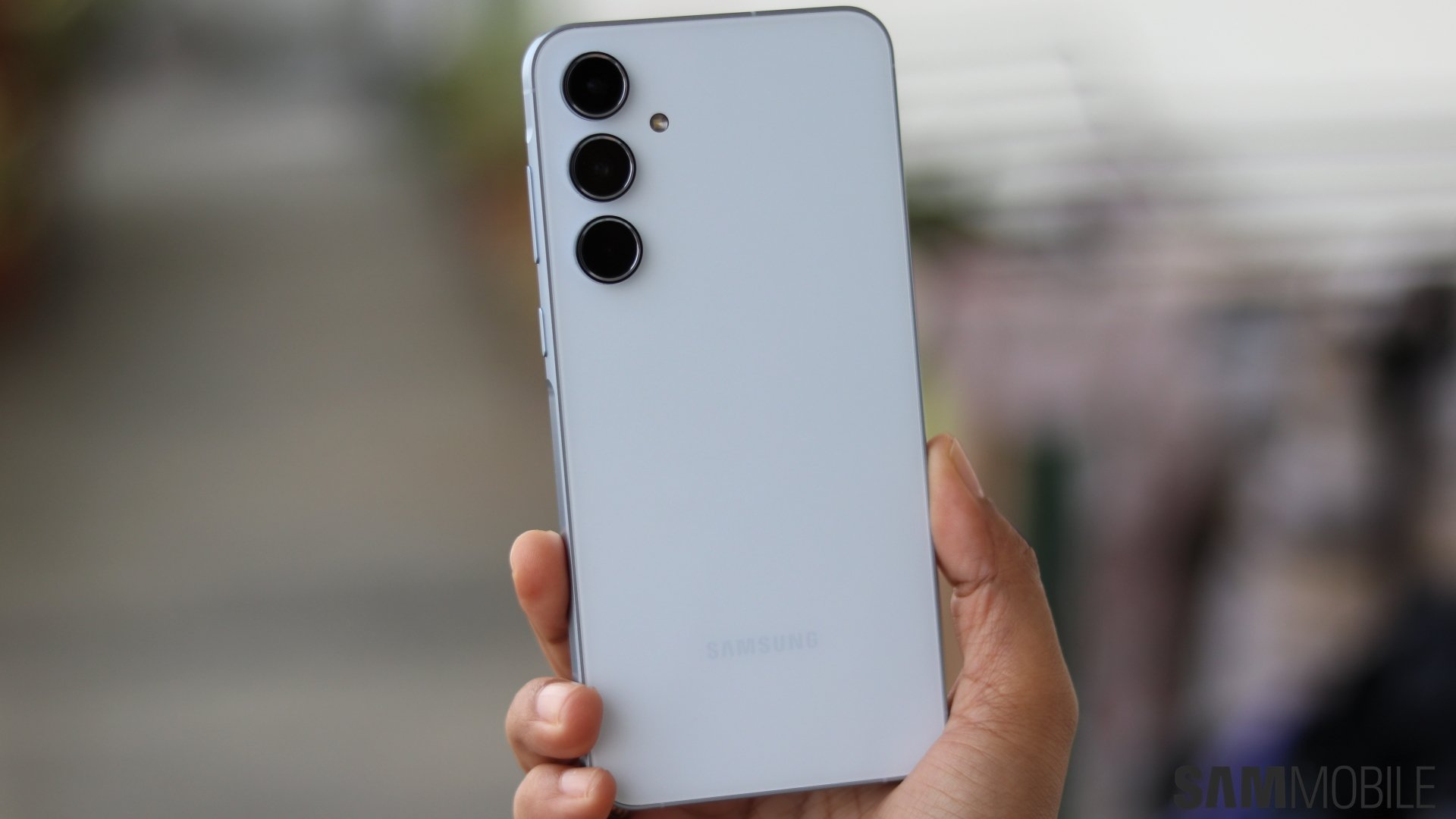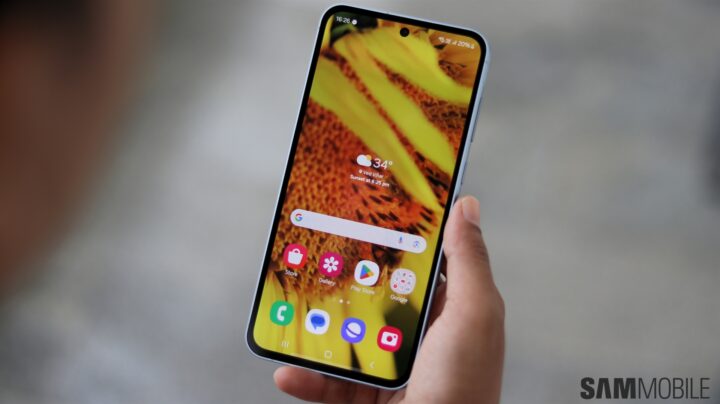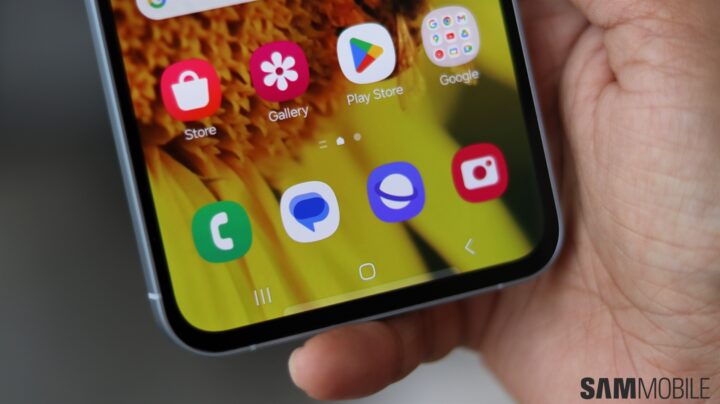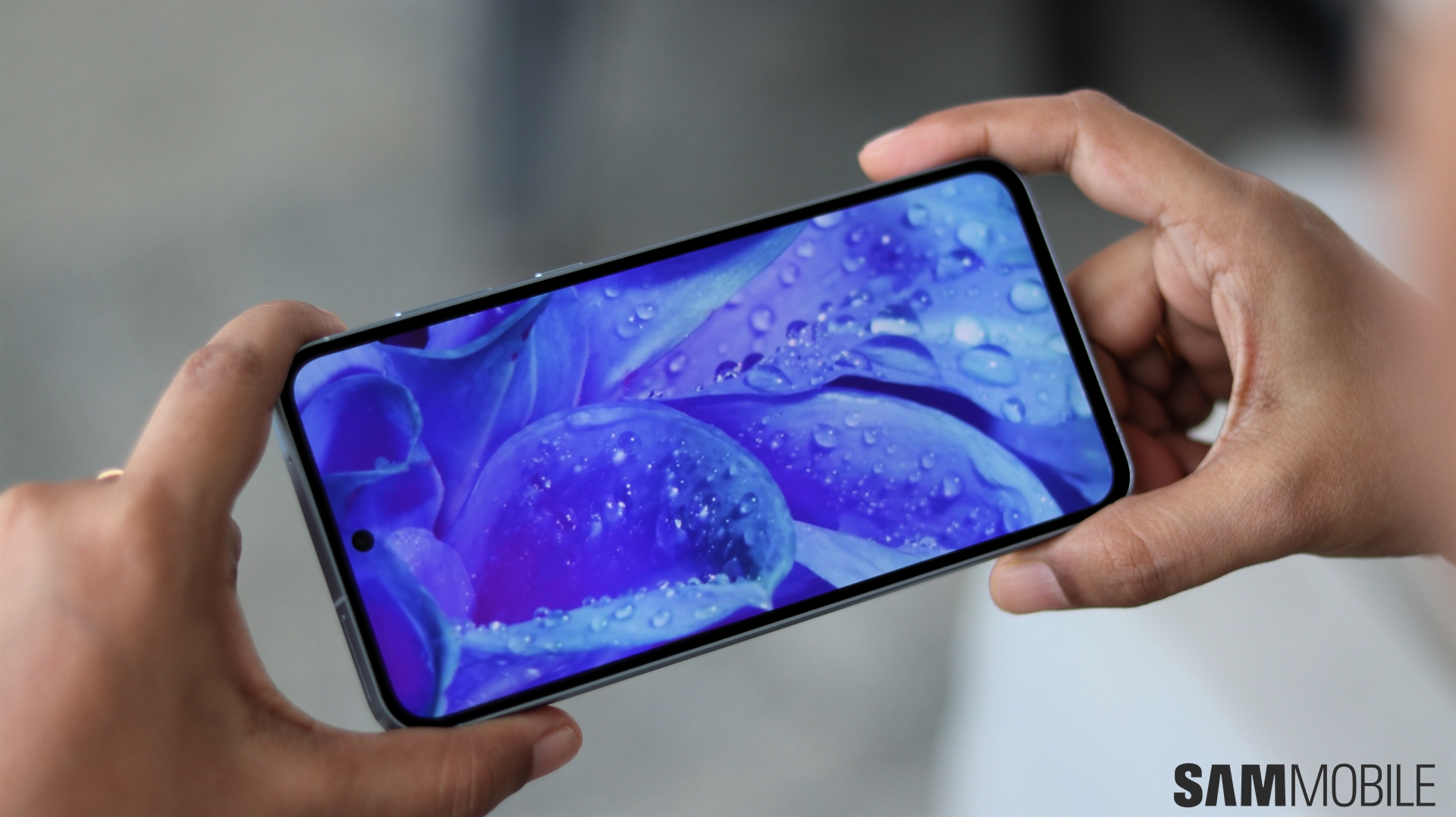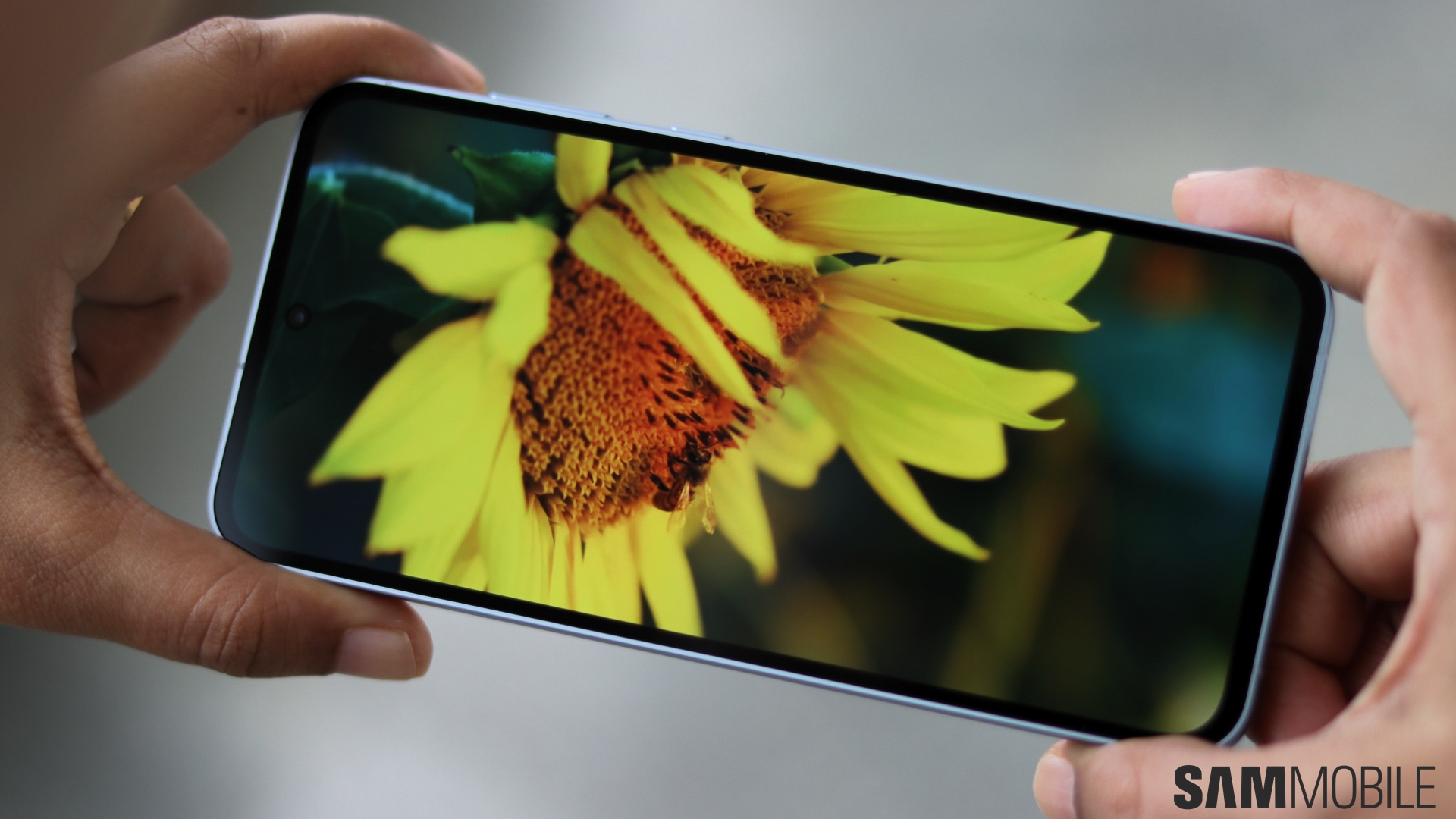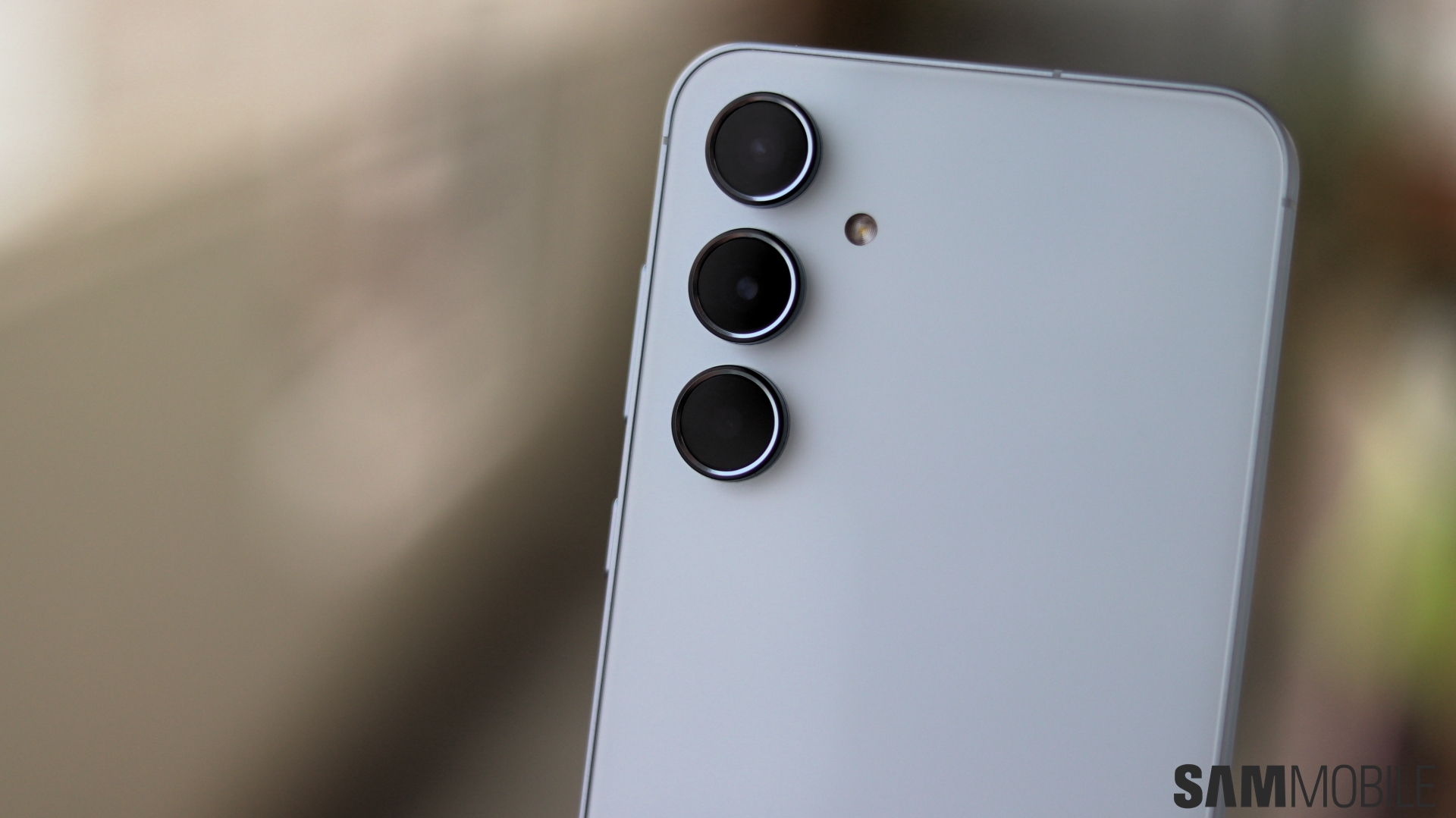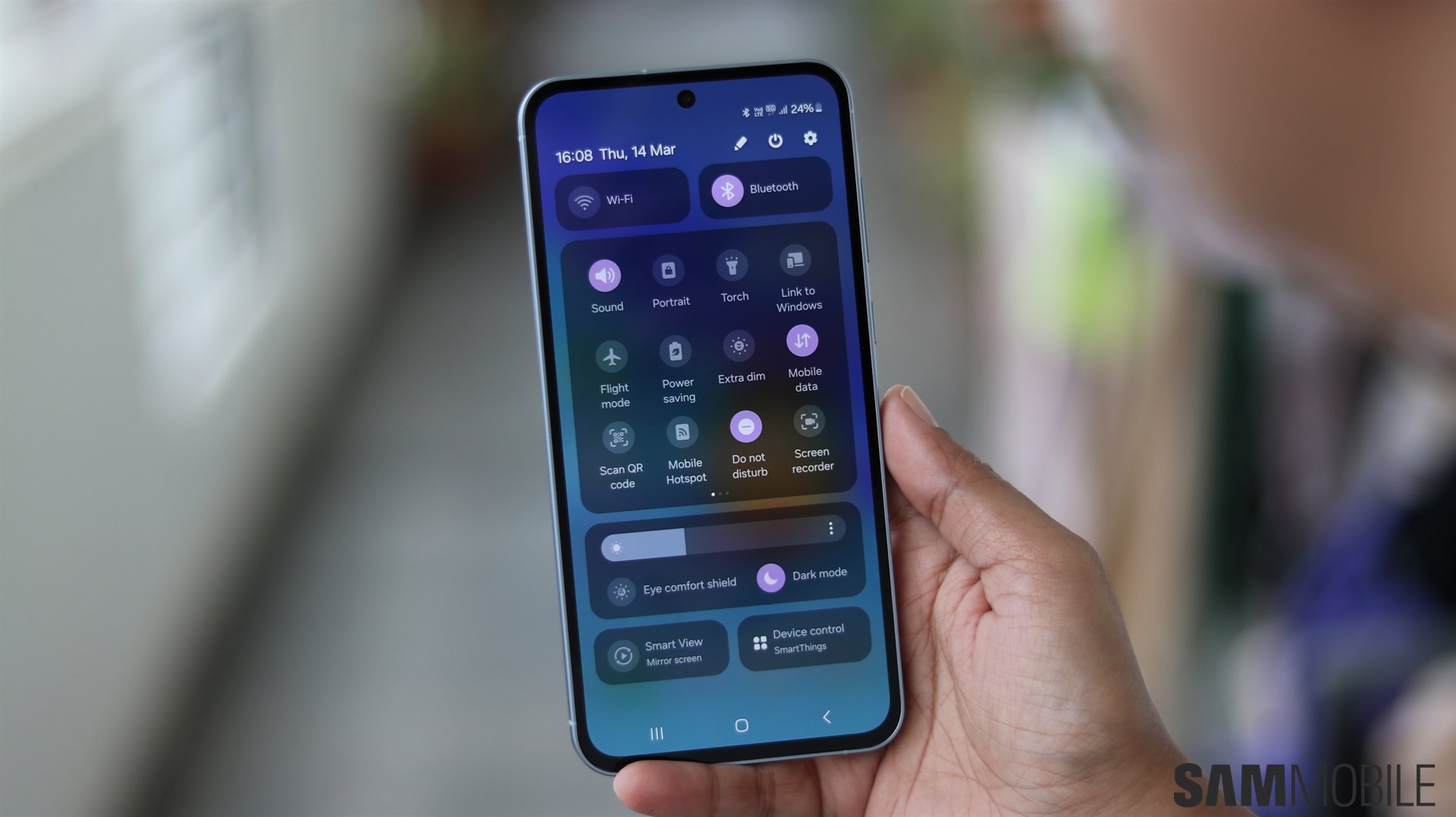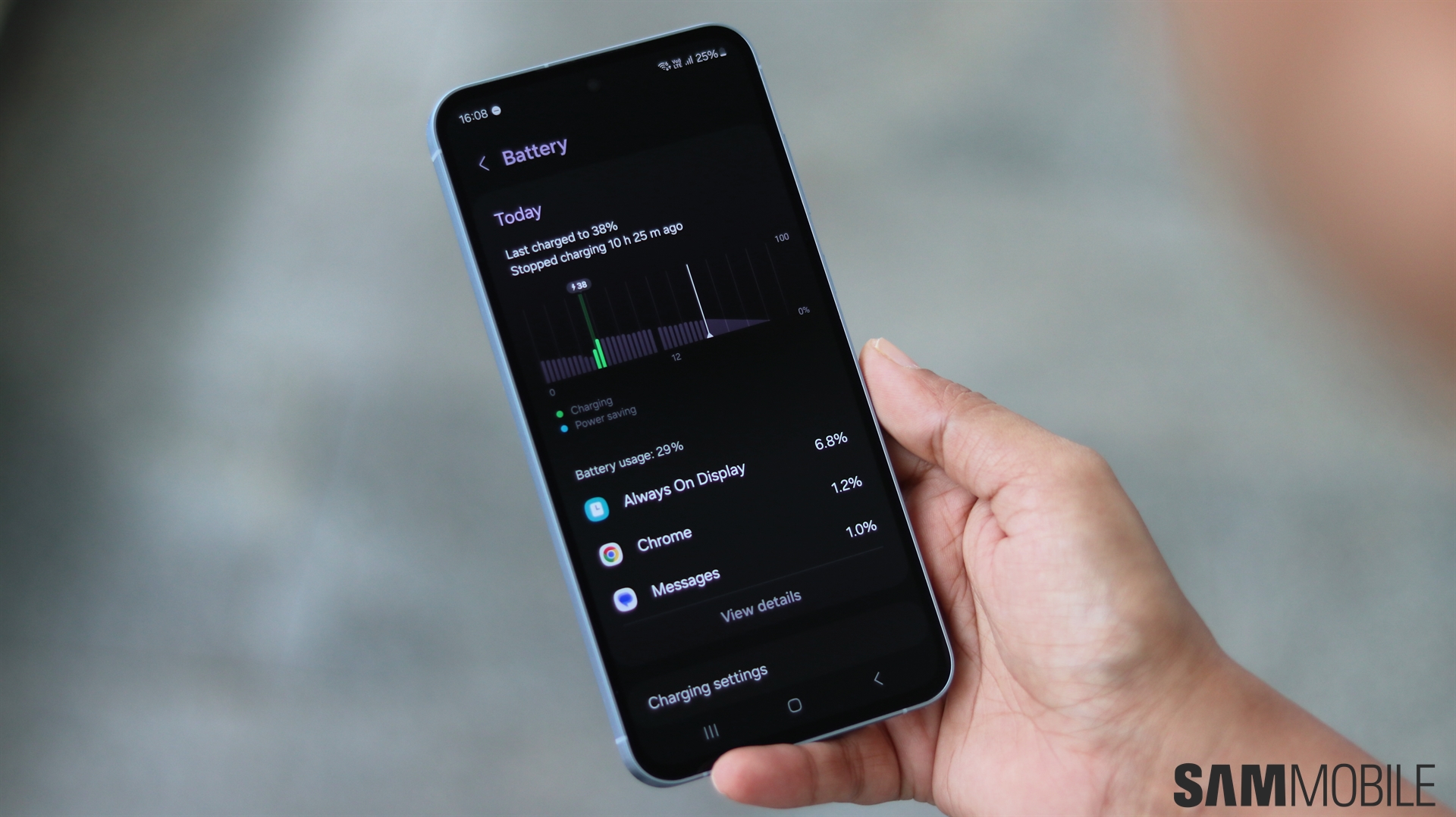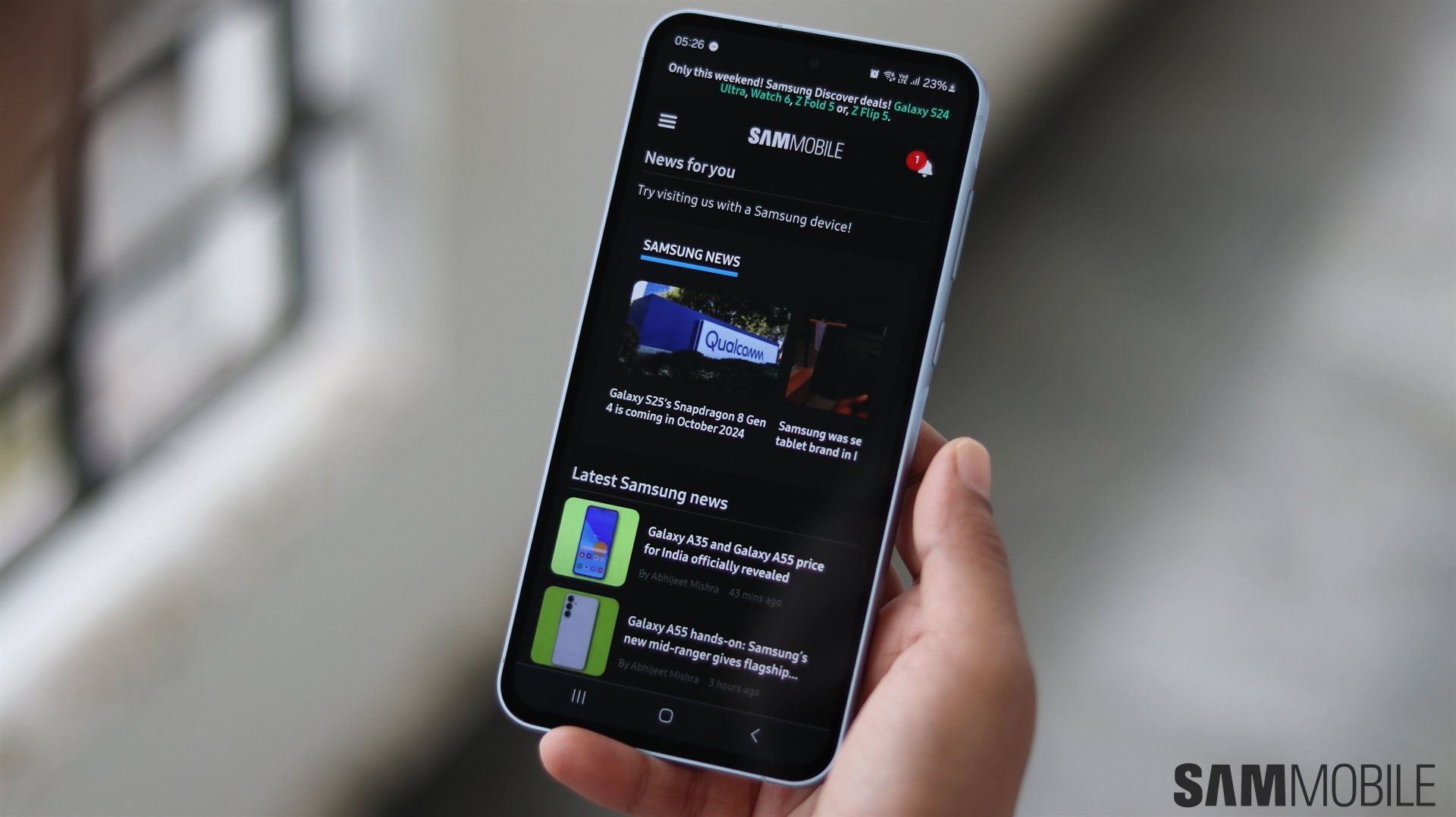[ad_1]
The Galaxy A55 is Samsung’s latest mid-range phone to promise a flagship-like experience without a flagship-like price, and in some ways, it really is the most premium mid-ranger from the Korean giant yet.
From a design that includes Gorilla Glass Victus+ and a metal frame to a new Exynos chip that has a GPU based on the same AMD architecture as Samsung’s high-end Exynos chips (though the A55 lacks ray tracing support) and up to 12GB of RAM, the A55 feels more of an upgrade than the A54 did compared to the A53.
Testing has revealed that the Galaxy A55 even brings some improvements that aren’t being highlighted by Samsung. For example, while the A55 has a marketed maximum display brightness of 1000 nits like the A54, it can reach upwards of 1600 nits in high brightness mode, 200 nits more than the A54 and around 150 nits higher than even the Galaxy S23 FE!
Better yet is the fact that the Galaxy A55 is cheaper than the Galaxy A54 in some markets for the entry-level variant. Even in other markets, like India, the starting price is not all that higher than its predecessor, and the difference can be negated by taking advantage of Samsung’s deals and discounts.
So should you buy the Galaxy A55? Is the user experience it provides across various metrics, such as display, camera, performance, battery life, and software, worth your hard-earned money?
Design
The Galaxy A55’s flagship inspirations are nowhere as apparent as in its design. Samsung has gotten rid of plastic entirely for the A55’s construction. The frame is an aluminium one, and the front and rear are covered by Gorilla Glass Victus+.
Compared to Gorilla Glass 5, used on the A54, Victus+ provides around two times better scratch and drop protection. This is the first time Samsung has equipped a mid-range phone with a version of Gorilla Glass Victus – even the Galaxy S23 FE has Gorilla Glass 5 on both sides.
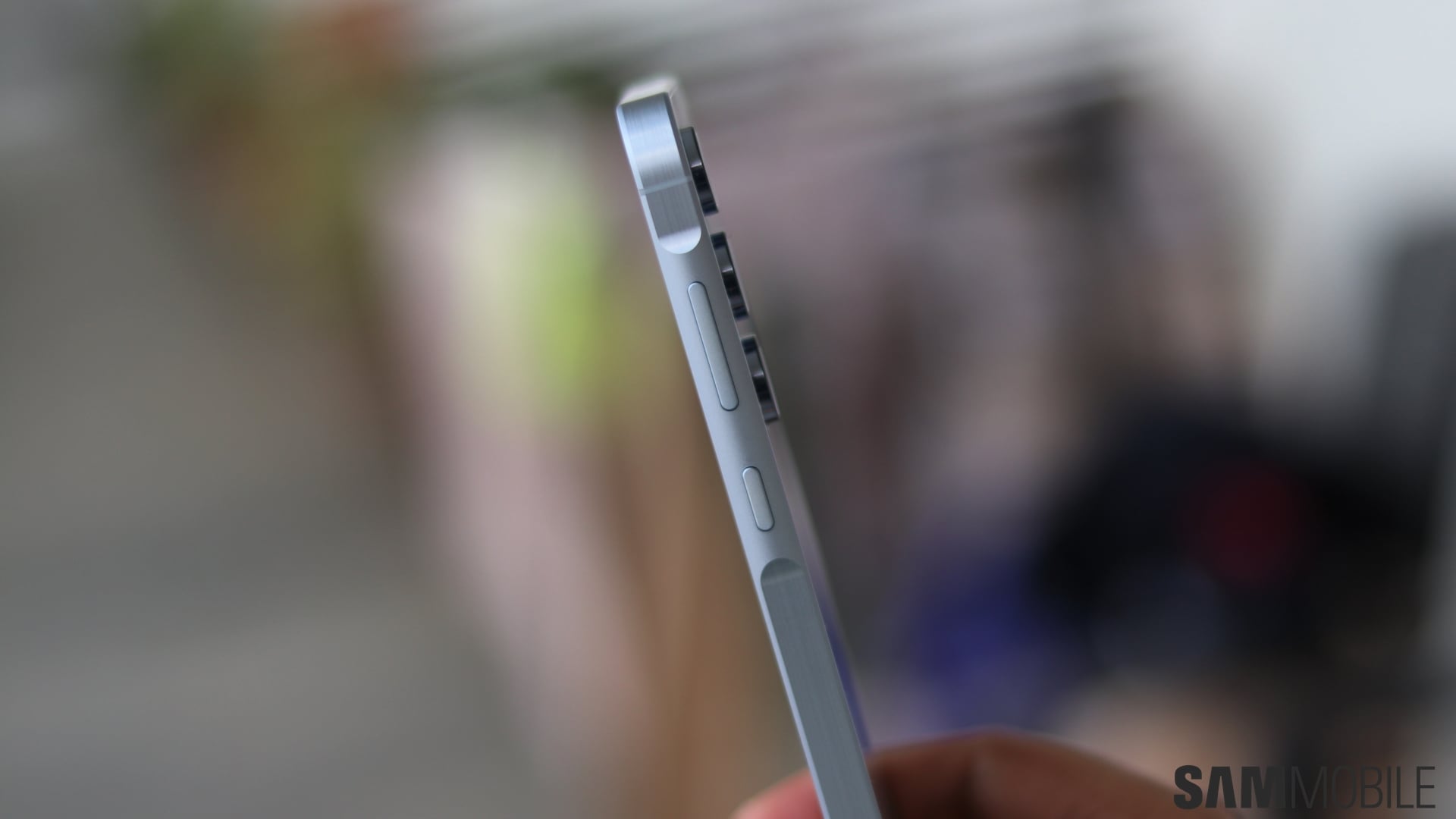
Like the Galaxy S24 and S24+, the metal frame on the Galaxy A55 is completely flat, with no curves on the edges of the display or the rear panel. But there are no rough edges to be seen or felt, and you won’t feel any discomfort in either one-handed or two-handed use.
The Galaxy A55 feels incredible in the hand and during use
The Galaxy A55 also has what Samsung calls Key Island. As the name suggests, it helps the area around the volume and power buttons stand out from the rest of the frame, which it does by slightly raising the frame. However, it just seems like a way for Samsung to separate the design of its mid-range phones from its flagship devices.
The buttons on Samsung’s phones have never felt hard to reach or use. The Key Island may be useful on devices with recessed fingerprint sensors built into the power button, but that’s it. Samsung has also opted for a textured finish for the entire frame excluding the Key Island area, which shines more than we would have liked when light hits it directly.
But, overall, the Galaxy A55 feels incredible in the hand and during use. It is water and dust resistant as well, and there’s nothing here that you can really fault. Well, except for the bezels around the display, which are as huge here as they were on the Galaxy A54. They look ugly, and since Samsung has increased the display size, the bezels just serve to make the phone larger than it has to be.
Display, audio
The Galaxy A54 had a 6.4-inch display, slightly smaller than the 6.5-inch display on phones that came before it, but for the Galaxy A55, Samsung has gone the opposite way. It has a 6.6-inch display, and since Samsund did nothing to reduce the bezel size, the A55’s dimensions are larger than previous devices.
The viewing experience the Galaxy A55 provides is excellent
Except for size, the A55 has the same display specs as the A54. It’s a Super AMOLED panel with a rated max brightness of 1000 nits, a 120Hz refresh rate, a resolution of 1080 x 2340 pixels, and HDR10+ support.
The viewing experience the Galaxy A55 provides is excellent, with mostly natural color reproduction (which you can change in the display settings) and wide viewing angles. The screen gets plenty bright, both indoors and outdoors, and is great for watching both SDR and HDR videos.
However, the auto brightness algorithm needs some work. Indoors, it is a little conservative and makes the display dimmer than expected. It’s something we noticed on the Galaxy S24 series as well, so Samsung may be deliberately tuning the algorithm this way on all 2024 smartphones.
The auto brightness algorithm needs some work indoors
The A55 has an optical fingerprint reader embeded in the display, and it performs the same as it did on the Galaxy A54. It has good accuracy and is pretty quick, but not as quick as the ultrasonic sensors on flagship Galaxy phones.
For audio, there is no 3.5 mm headphone port, but the stereo loudspeaker setup is sufficient for the occasional bout of gaming and watching movies, though it’s a little light on the bass and sometimes sounds like it’s almost at the brink of distortion at the highest volume.
Camera
The Galaxy A55 has the same camera hardware as the Galaxy A54 (a 50MP primary rear camera, a 12MP ultra-wide camera, a 5MP macro camera, and a 32MP front-facing camera), so the improvements Samsung is touting, such as better night photos and video stabilization, come through changes made to the camera algorithms.
But it appears that most of it is marketing speak, as the only improvement we noticed was better night and low-light performance. To achieve that, Samsung has tuned noise reduction to be more aggressive, and it works wonders as far as removing noise from photos is concerned. That also has the effect of making pictures a tad soft in Night mode, though that’s more of an observation than a complaint.
Unlike previous phones in the lineup, the Galaxy A55 supports electronic stabilization in 4K@30fps video recording, which has garnered some attention from those who love capturing videos while on the move. Unfortunately, the results are not impressive, with videos showing a lot of jitter, particularly at night.
Overall, performance of the primary camera is perfectly fine. Pictures have good detail and dynamic range during the day, while nighttime pictures are cleaner thanks to the aggressive noise reduction that we mentioned earlier.
Check out a bunch of photos from the Galaxy A55’s primary camera in the gallery below.
The A55 has a tendency to not automatically turn on Night mode in every situation where it would be beneficial, and we recommend switching to Night mode manually in these instances. The camera also struggles with bokeh in Portrait mode when the separation between the subject and background isn’t as clear, which wasn’t an issue on the Galaxy A54 or A53.
Here are some portrait/bokeh photos:
Samsung also continues to use what are clearly outdated ultra-wide and macro cameras on the A5x lineup. The ultra-wide camera does an okay job during the day but is a soft, noisy mess in low-light and nighttime conditions.
In the gallery below, you can see ultra-wide captures next to the same scenes shot with the primary camera.
The macro camera, meanwhile, is hamstrung by the low resolution and the lack of any sort of stabilization, which makes it hard to take non-shaky photos unless your elbows have something to rest on. It’s embarrassing that Samsung still doesn’t provide zoom cameras in the mid-range segment. The Galaxy A73 had a 3x camera two years back, and while the A55 is similarly priced, it doesn’t have one.
The selfie camera has not seen an upgrade in four years either, but it does an admirable job for the most part. It gives you shaky photos in low-light conditions, especially when it uses the screen flash and automatic Night mode, but selfie quality during the day and in well-lit indoor settings is more than decent.
Check out selfies captured normally and in portrait mode in the gallery below.
There are lots of camera modes available on the Galaxy A55, including a Pro mode for videos and photos, super and standard slow motion, hyperlapse, Single Take, Food, and panorama. Dual Rec mode lets you record videos from the front and rear camera at the same time, and the Fun mode gives you access to Snapchat filters in Samsung’s Camera app. You also have a number of AR modes, with the option to create AR stickers, doodling in real-time while recording videos of a person, and more.
Performance

Performance-wise, the Galaxy A55 took us by surprise. We have been disappointed many times by Samsung’s Exynos-powered mid-range phones that sound powerful on paper but are an unoptimized mess in practice, an issue that was most apparent on last year’s Galaxy A54.
But the Galaxy A55 doesn’t have those issues. We know the Exynos 1480 that sits inside this phone has some powerful specs, including a new GPU that uses AMD’s RDNA graphics architecture, but it also seems like Samsung has begun taking software optimization seriously this year.
The Galaxy A55 offers a smooth and snappy experience in general use
Whatever the reason, the Galaxy A55 offers a smooth and snappy user experience. There are some instances where the UI animations are a bit choppy, like when opening an app or switching between two apps. But when everything is running fine, the A55 can feel as smooth as a Galaxy S23 or Galaxy S24.
Our review unit had 12GB of RAM, but we have heard from our peers that the variant with 8GB of RAM works just as well. That’s good, as the 12GB variant (which features 256GB of expandable storage) isn’t available in all countries.
Our only major gripe is with the performance in the camera app. Switching modes can take a second or two, and we also noticed lag when switching zoom levels during video recording. This has long been an issue on mid-range Galaxy phones, and the A55 does nothing to change it.
As far as GPU performance is concerned, the Galaxy A55 brings up to a 40% improvement over the Galaxy A54 thanks to the AMD-powered Xclipse 530 GPU, at least in benchmarks. Thanks to a 70% larger cooling system compared to the A54, the A55 is impressive at keeping temperatures in check even when you run intensive benchmarks on a loop, and heating in day-to-day use is practically non-existent.
The Exynos 1480 is a new chip so demanding games like Call of Duty limit you to low or medium graphics
However, we were unable to test the A55 to its limits in games. The Exynos 1480 is a new chip so demanding games, like Call of Duty, limit you to low or medium graphics out of the box. Based on benchmark performance, the A55 will probably do well in all kinds of games, but this is something we will have to revisit in a few weeks when popular games have been updated with official support for the phone’s Exynos chip.
The Galaxy A55 has a full suite of connectivity features, incluing Wi-Fi 6 and 5G. The phone has a hybrid SIM tray, which can take either two physical SIMs or one SIM and one microSD card. Thankfully, the phone supports eSIM in many markets, so you can still get away with using two mobile networks and external storage at the same time.
Software
If you were expecting the Galaxy A55 to offer software features similar to the Galaxy S24, you will be disappointed. While it runs One UI 6.1, based on Android 14, like the Galaxy S24 series, not a lot is different than what you get with One UI 6.0 on a Galaxy A54 or A53.
There is no Galaxy AI functionality here, not even something as basic as generative wallpapers, and the A55 also lacks features like wallpaper support on Always On Display. Furthermore, the A55 will receive four major OS upgrades like its predecessors, not seven.
Of course, it’s not surprising Samsung wants to keep some things exclusive to its flagships, and in that context, the Galaxy A55 offers a mostly fully-featured One UI experience. One UI is arguably the best custom user interface in the Android landscape, and while it is known to stutter and lag on mid-range devices, that’s not the case on the Galaxy A55.
The Galaxy A55 is also the first Samsung device to support seamless updates. Installing updates no longer locks you out of the device for a few minutes. Updates are now installed in the background, which means you can continue using the phone and can start using the updated software after a 1-2 minute reboot.
For more details on the Galaxy A55’s software, you can check out the videos above and below.
Battery life
Battery life on the Galaxy A55 is simply fantastic. It has the same 5,000 mAh battery as the Galaxy A54, but it’s far more efficient, likely thanks to the new Exynos chip and optimization on the software side of things.
Battery life on the Galaxy A55 is simply fantastic…
With regular use, including 3-4 hours of watching videos and an hour or two of gaming at high brightness levels, with a mix of Wi-Fi and 5G connectivity, the phone can last a full day off the charger. With light use, and with features like Always On Display turned off, you can get away with only charging it every two days.
Just don’t expect super fast charging, even if Samsung uses those exact words to describe the 25W charging speeds its phones support. You can achieve nearly 40% battery charge in 30 minutes and somewhere between 65-70% in an hour, but a full charge takes nearly 85 minutes.
…just don’t expect super fast charging
That’s fast if you live in a market where Samsung doesn’t face much competition, but here in India, where our device was tested, there are plenty of Chinese phones that cost less and take less time to charge.
To add insult to injury, that 25W charger is a separate purchase if you don’t already own one that works with Samsung devices. Other manufacturers are making the charger a separate purchase as well, but at least you get charging that actually feels super fast.
Verdict
The Galaxy A55 is a true return to form, especially when it comes to device performance. For what seems like the first time, we have a mid-range Galaxy phone with an Exynos chip that is optimized out of the box and will not need months of updates to perform like any phone in its segment should.
Battery life is excellent out of the box as well, unlike the Galaxy A54, which had underwhelming endurance at launch. It also addresses complaints some Samsung fans have had for years about its phones not feeling as premium as less costly Chinese devices, with a metal frame and high-quality Gorilla Glass Victus+ surrounding the entire device.
It’s only the camera setup that feels a little out of place here considering the Galaxy A55’s price point. That macro camera needs to die, the ultra-wide and selfie cameras are due for an upgrade, and we wouldn’t say no to a newer, better sensor for the primary camera.
Samsung is clearly keeping some things for later, such as slimmer bezels and improved cameras, and we get it. The company cannot afford to bring huge upgrades to its devices every year, not without affecting the asking price.
We’re pleased with everything the Galaxy A55 does offer and can recommend it to anyone in the market for a new mid-range phone. It’s also the first phone we can recommend as an upgrade for Galaxy A52, A52 5G, and Galaxy A52s owners.
However, we would also suggest checking prices for the Galaxy S23 FE. In some markets, like India, it’s available at prices similar to the Galaxy A55 on third-party retailers like Amazon. The S23 FE came out six months earlier with an older version of Android and One UI, but overall, it’s easily the superior device.
[ad_2]
Source Article Link


